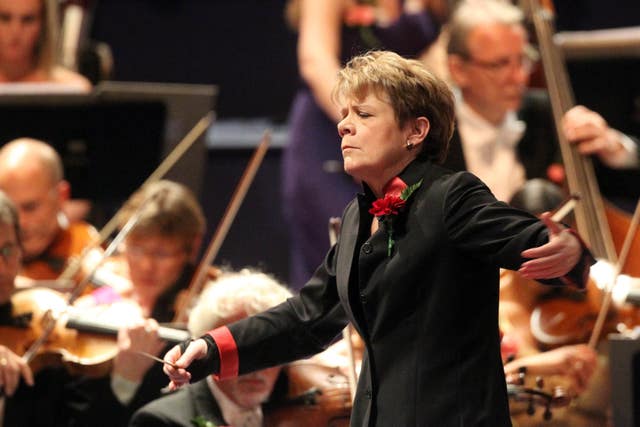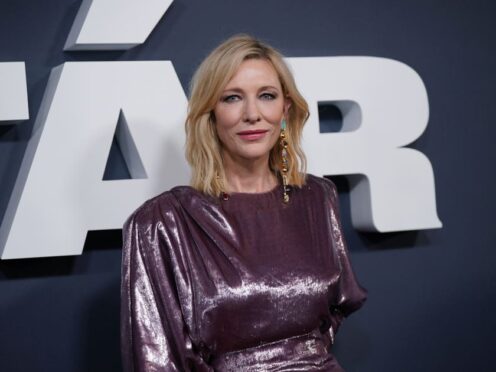Cate Blanchett has said her new film Tar is a “meditation on power” which she feels is “genderless” after an acclaimed female conductor branded the approach “antiwoman”.
Written and directed by Todd Field, the film follows the complicated genius conductor of a German orchestra, Lydia Tar, at the height of her career as it all begins to unravel as she faces accusations about her behaviour and the darker parts of the life behind her success come to light.
The film has been widely praised with Australian actress Blanchett, 53, just winning a Golden Globe for her role as the fictional Tar and is also tipped for an Oscar.

However, in a recent interview with The Sunday Times, American conductor Marin Alsop, 66, said the character “offended” her as a woman, conductor and a lesbian.
She said that “so many superficial aspects of Tar seemed to align with my own personal life” including being a lesbian married to an orchestral musician and that she does lectures at prestigious music colleges.
Alsop added that her main issue was the portrayal of women as leaders, saying: “To have an opportunity to portray a woman in that role and to make her an abuser? For me that was heartbreaking.
“I think all feminists should be bothered by that kind of depiction, because it’s not really about conductors, is it? It’s about women as leaders in our society.”
Addressing Alsop’s criticism on BBC Radio 4’s Today programme , Blanchett said: “I have the utmost respect for Marin Alsop. She’s a trailblazer of a musician and a conductor.
“And it’s a very provocative film and it will elicit a lot of very strong responses for people.
“What Todd and I wanted to do was to create a really lively conversation. So there’s no right or wrong responses to works of art.
“It’s not a film about conducting, and I think that the circumstances of the character are entirely fictitious.
“I looked at so many different conductors, but I also looked at novelists and visual artists and musicians of all stripes. It’s a very non-literal film.”

Responding to Alsop’s critique that there are “many actual, documented men” that the film could have been based on and to put it on a female feels “antiwoman”, Blanchett added: “She’s entitled to her opinion, absolutely. But it’s a meditation on power and power is genderless.”
Reflecting on having the focus on a female, the actress said she does not think you could have talked about the “corrupting nature of power” in the same “nuanced way” if it had been a man.
“It is a meditation on power and the corrupting nature of power and I think that that doesn’t necessarily happen only in cultural circles”, she said on the radio show on Thursday.
“I mean, she could just as well have been a master architect or the head of a major banking corporation.
“It is also about giving birth to something and of the creative process, but the destructive urge behind that, as well and I feel that there’s a self combustion in her.
“But I don’t think you could have talked about the corrupting nature of power in as nuanced away as Todd Field has done as a filmmaker if there was a male at the centre of it because we understand so absolutely what that looks like.
“And I think that power is a corrupting force no matter what one’s gender is, I think it affects all of us.”
